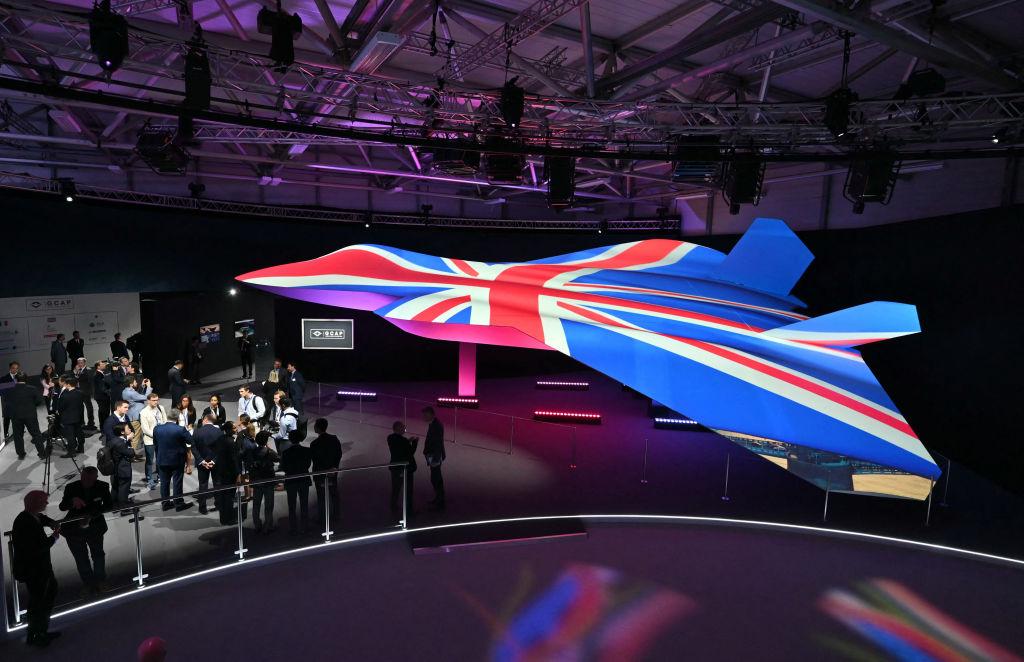
The Union Jack is projected onto the new model of the GCAP fighter jet at Farnborough Airshow 2024.
FARNBOROUGH—Industry partners in the tri-national Global Combat Air Program (GCAP) insist their foot remains on the development accelerator pedal despite the new UK government launching a review into the country’s defense posture.
While recent media reports have suggested that development of a next-generation combat aircraft could be cut after the Strategic Defense Review (SDR) called by Prime Minister Keir Starmer’s government, industry partners including BAE Systems and Leonardo were buoyed on the first day of the Farnborough Airshow when Starmer name-checked the project as he made an appearance at the event. Starmer described GCAP as making “significant progress” and offering “significant benefits here in this country.”
“The pace continues to go [forward],” said Herman Claesen, BAE Systems’ managing director for future combat air systems, as he addressed a packed GCAP news conference here on July 22. “Of course, we need to respect the fact that the government has called an SDR … and wants to look out at the priorities and everything that goes with it.” Even had the SDR not been taking place, the industrial partners would still need to provide supporting information for business case reviews, he added.
Over the past 12 months, the industrial partners across the development pillars in the three countries have been discussing amongst themselves how they will split the work on the project between them, attempting to avoid the fixed workshares that were politically delineated in previous collaborative projects such as the Eurofighter or Panavia Tornado. Claesen said there had been good progress in these efforts and the process was nearing its end.
Progress is also being made on the creation of an industrial joint venture between BAE Systems, Leonardo and Mitsubishi Heavy Industries which needs to be established ahead of the multi-national, full-scale, multi-year development contract which will be delivered by the governments in London, Rome and Tokyo by this time next year. The construct is being designed to be “more efficient, faster and more suitable for international cooperation from [other] foreign countries [outside the existing program], Guglielmo Maviglia, Leonardo’s chief global combat air program officer, told journalists.
Such a construct could benefit countries that have shown interest in joining the initiative, such as Saudi Arabia, which sees entry into the program as a steppingstone to building industrial capacity to move away from their reliance on exports of oil.
London, Rome and Tokyo have already agreed on the formation of a treaty to form the GCAP International Government Organization (GIGO), a UK-based entity with rotational management that operates like the U.S. F-35 program’s Joint Program Office. GIGO’s role will be awarding contracts for the different phases, defining and prioritizing requirements and resolving issues between the partners. The process to formally ratify the treaty is currently in progress.
The GCAP program aims to deliver a crewed combat aircraft that will eventually go on to replace the Eurofighters of Italy and the UK and the Mitsubishi F-2s of Japan and operate alongside the Lockheed Martin F-35 Joint Strike Fighters operated by all three countries. They are also hoping that as the potential first mover into the sixth-generation combat aircraft market, the three countries hope to capture a slice of the export market. First deliveries of the GCAP fighter are planned for 2035.





